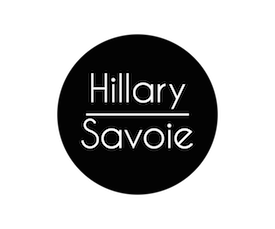My friend Channing and I have been editing a few essays together—talking regularly about life with Ez and how I write about it. There is this funny concept we keep coming back around to over and over again: I don’t know how you do it. It comes up in our conversations a lot because I hear it—or some version of it—a lot. It is like a chorus repeated by friends, family, strangers, and medical professionals.
We speak about it enough that Channing has shortened it to IDKHYDI (pronounced: I.D.K. Heidi).
As I explained to Channing on our last Skype call, to some extent I feel bad about how IDKHYDI makes me feel, “I know it is intended to be a comfort—an implied acknowledgement that we are doing everything that could reasonably be expected to do and then some…and that we are doing in a way that doesn’t outwardly show all the thrashing around we are no doubt doing. IDKHYDI is intended to be a reassurance that we appear to be doing OK, all things considered.” As I talk I watch her walking from her desk to the kitchen for a drink.
“Yes, but, you feel it differently, don’t you? It is like IDKHYDI is the least compassionate thing to be said, it steps away from reality and mortality and says Not To Me, right?” Channing responds, sitting back down on her couch.
“Exactly,” I say.
It’s like this…
At first I felt flattered when someone would IDKHYDI me. It helped me to stiff upper-lip it and keep pushing on, which, I suppose, in those early days, was perhaps what I most needed to do. When we were in the crisis mode of our first two years I didn’t have time to think about how we were doing…and so when I heard IDKHYDI, there was some kind of weak comfort in the acknowledgement that we were doing “the impossible.” This acknowledgement appealed to my puritanical roots, that part of me that doesn’t mind suffering in silence so long as it is recognized with a wink.
But lurking behind that comfort, that moment of flattery—of acknowledgement of my endless maternal self-sacrifice—was a flash of anger.
Around the time I was finishing my dissertation, the anger stopped hiding, I started wanting to respond to IDKHYDI with a list “I do it with a ton of help, focused hard work, zero down-time, eternal to-do lists, a colorful list of swear-words in two languages, Esmé-inspired determination…and coffee. Lots and lots of coffee. What about you? IDKHYDI.”
It frustrated me because it felt like people thought there was some kind of secret behind it…like I might just say: “Oh when they hand out the babies who are severely medically fragile and disabled they give you this handbook called How Life Works and a bottle of never-ending magic potion. I don’t even have to read the book. I just sleep with it under my pillow. Handy, right?”
I have written about this anger sort of obliquely before in a post I wrote after being told by someone that I was just “stronger” than other people and that was why I could manage to be ok despite everything. There is a lot there, of course, about the defensiveness that I feel around anything that suggests that Esmé is a somehow a burden or an encumbrance…because, while life with Esmé has proven to be a challenge of an unexpected sort, life with Esmé is also filled with a manner of rare and unusual joys, joys I would never ever trade for anything…even (or perhaps especially) for more stable ground to build my life on..
But really, the more I think about it, the more I know that this isn’t the source of my frustration with IDKHYDI. IDKHYDI isn’t fundamentally about Esmé. The “it” isn’t necessarily “I don’t know how you parent a child like Esmé,” but rather “I don’t know how you can parent under these trying circumstances.” And, as my hubby carefully pointed out to me this weekend, it isn’t a statement about “why” we do it…everyone knows why.
It is a statement about how it is possible to be doing it…
So, I started to think of times that I have heard IDKHYDI…and I realized something that was, perhaps obvious, but essential to it: IDKHYDI is punctuation.
It ends, rather than opens, a conversation.
It says “I know enough now to make the following summation: IDKHYDI. So, moving on…” In this way, IDKHYDI is a full-stop. Have you just met me, taken a glance at my daughter, and IDKHYDIed me? Have we just spoken about a problem I am trying to sort out? Are you trying to remind yourself that this could never happen to you?
And, the thing is, my whole existence as Esmé’s mother is oriented toward starting conversations about her, not closing them. My whole point here—why I write—is to explain the intimacies of loving someone like Esmé…that it is hard work, that it is beautiful. That there are things others can do to better understand Ezzy. That there are other people who don’t have the supports we have…who may need your help, your compassion.
That Esmé is, fundamentally, just a kid who plays and laughs and needs.
That I am, fundamentally, just a mom—a woman who loves and dreams and hopes.
I want to push so hard against what makes us different so that everyone can see that we are the same…it is why I will almost always endlessly answer questions about Ez, why I will never tire of talking or writing about her…but IDKHYDI shuts that down.
Not long ago I found myself in a curious position with a relative stranger who flipped IDKHYDI on it’s head…making it a question: How do you do it? And not in that head shaking rhetorical question kind of way of saying “How do you do it?” (which is an IDKHYDI by another name). Rather the question was asked in that true let’s-talk-about-this kind of way, “Tell me, how do you do it?” And then, later, “And how are you?”
It wasn’t a question about whether I could keep going. It wasn’t a question about whether I was sick or well. It wasn’t a question about what was happening with Esmé.
It threw me off balance, honestly…so I laughed nervously, in the manner of my Grandmother Brown: “Me? Oh I’m fine…”
But then I talked. I talked about my fears, about my hopes, about my dreams.
And I felt a bit more human…I felt a bit better known.
I felt a bit more seen.


I love this post so much
Hit submit prematurely 🙂 found via max's roundup. I'm Mrs tiger on hellobee.com. Anyways thanks for writing up this same feeling I have so eloquently!
Thanks Laura! So glad you found us!
I get IDKHYDI all the time, and i could not agree with you more, instead of compassion I sense pity.
Pity is such an awful thing to see on someone's face, isn't it…